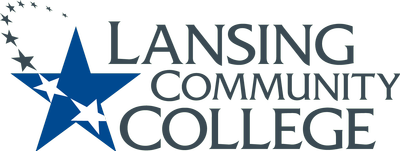
Health Technology I & II
This program is offered to juniors and seniors. Students taking this course are looking at a fast-paced introduction into the field of healthcare. Students learn lab skills, become proficient in vital signs, and have the opportunity to earn CPR certification. The program uses a combination of lecture and lab to provide exposure to a wide variety of health career paths to help students decide if the healthcare field is a good fit for them. Students are immersed in the language of healthcare through the study of medical terminology, and learn basic anatomy and physiology.
Year 2
This course is offered to seniors that have successfully completed the first year of the program. Students have the option to choose between Health Technology II at Lansing Community College or Health Technology II at Davenport University.
Program Overview
Course Information
Program Location
LCC Main Campus (Shuttle Available)
Session Offered
AM.PM
Average Lecture Days/Week
2 days
Reviews/Week
2 days
Average Lab Days/Week
1 day
Homework
- Weekly
- Worksheets - 4 days/week
Required Reading
- College level textbooks
- Workbooks
- E-books
- Internet
Success Indicators
- Highly motivated
- Strong work ethic
- Excel in fast-paced learning environments
- Enjoy writing and researching projects
College Credits - 7
- CHSE 100 - Introduction to Health Professions
- CHSE 120 - Medical Terminology
Academic Rigor
4 out of 5
Capital Region Technical Early College (CRTEC)
Students enrolled in this program may choose to participate in the Capital Region Technical Early College program. This is a high school-to-college program where students start in grade 11 and end their 13th year with a degree or certification. This program gives students relevant career related experiences.
Course Outcomes
Students Learning Outcomes include but are not limited to:
- Select three ways to classify hospitals or healthcare facilities
- List the various methods used to pay for healthcare in the United States
- Using word problems, calculated patient dosage using the metric system and common mathematical formulas related to health care
- Measure patient vital signs based on State of Michigan standards
- Identify three strategies healthcare providers can employ when communicating with patients and staff to accurately convey information and develop rapport
- Explain the necessity for critical thinking in a healthcare setting
- After completing OSHA-required training in Blood Borne Pathogens and Standards Precautions, list the requirements for maintaining Universal Standards
- Given the list of medical abbreviations, root words, prefixes and suffixes, construct medical words, and give the meaning of medical abbreviations
- Using the five-step educational process provided, create a teaching plan to communicate information about selected health career programs
- Identify organizations that contribute to patient safety and overall healthcare quality with regard to regulations, standards and facility accreditation
- Divide basic medical terms into component parts
- Spell and pronounce medical terms correctly
Certifications
CPR for Health Care Providers
Health Tech II LCC
- National Certified Patient Care Technician (NCPCT)
- Certified Nurse Assistant (CNA)
Health Tech II DU
- Certified Clinical Medical Assistant (CCMA)
Student Leadership
Students have the opportunity for leadership, competition and community service through membership in HOSA.
Career Outlook
Careers
- Acute Care Nurse
- Registered Nurse
- Radiology Technician
- Medical Records Specialist
- Pharmacy Technician
Median Wage
- Acute Care Nurse: $41.38 Hourly, $86,070 Annually
- Registered Nurse: $41.38 Hourly, $86,070 Annually
- Radiology Technician: $35.29 Hourly, $73,410 Annually
- Medical Records Specialist: $23.45 Hourly, $48,780 Annually
- Pharmacy Technician: $19.37 Hourly, $40,300 Annually
Employment Outlook (Average)
- Acute Care Nurse: 5-8%
- Registered Nurse: 5-8%
- Radiology Technician: 5-8%
- Medical Records Specialist: 9%
- Pharmacy Technician: 5-8%

